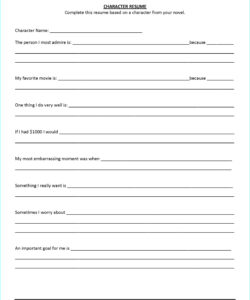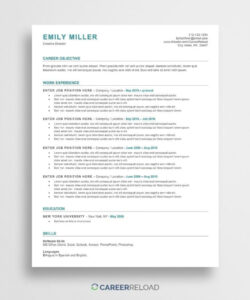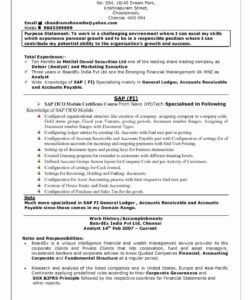When it comes to writing a resume, one of the most important sections is the experience section. This is where you can showcase your skills and accomplishments to potential employers. If you have clinical experience, it’s important to highlight it in a way that will make you stand out from other candidates. In this article, we’ll go over some tips on how to describe clinical experience on your resume.
First, it’s important to understand what clinical experience is. Clinical experience refers to any hands-on experience you’ve had in a healthcare setting. This can include internships, volunteer work, or paid positions. When describing your clinical experience, it’s important to be specific about what you did and what skills you gained. For example, if you worked as a nursing assistant, you might describe your experience as follows:
How to Describe Clinical Experience on Your Resume
When describing your clinical experience on your resume, there are a few things to keep in mind:
1. Be Specific
When describing your clinical experience, be as specific as possible. Use action verbs to describe what you did and what skills you gained. For example, instead of saying “worked with patients,” say “assisted patients with daily living activities.”
2. Highlight Your Accomplishments
Don’t just list your clinical experience – highlight your accomplishments. Did you receive any awards or recognition for your work? Did you help implement a new program or process that improved patient care? Make sure to include these details in your resume.
3. Tailor Your Experience to the Job
When applying for a job, make sure to tailor your experience to the job description. Highlight the skills and experience that are most relevant to the position you’re applying for. For example, if you’re applying for a job in pediatrics, make sure to highlight any experience you have working with children.
How to Write a Clinical Experience Resume
When writing a clinical experience resume, there are a few things to keep in mind:
1. Use Action Verbs
Use action verbs to describe your clinical experience. This will make your resume more engaging and help you stand out from other candidates. Some examples of action verbs include:
- Assisted
- Administered
- Coordinated
- Diagnosed
- Evaluated
- Managed
- Monitored
- Treated
2. Quantify Your Accomplishments
Whenever possible, quantify your accomplishments. For example, instead of saying “assisted with patient care,” say “assisted with patient care for 20+ patients per day.”
3. Keep It Concise
Your resume should be no more than two pages long. Keep your descriptions concise and to the point. Use bullet points to make your resume easy to read.
FAQs
Q: How do I describe clinical experience on my resume?
A: When describing your clinical experience, be as specific as possible. Use action verbs to describe what you did and what skills you gained. Highlight your accomplishments and tailor your experience to the job you’re applying for.
Q: What should I include in my clinical experience resume?
A: Your clinical experience resume should include your education, clinical experience, and any relevant certifications or licenses. Make sure to highlight your accomplishments and tailor your experience to the job you’re applying for.
Q: How do I quantify my clinical experience?
A: Whenever possible, quantify your clinical experience. For example, instead of saying “assisted with patient care,” say “assisted with patient care for 20+ patients per day.”
Q: How long should my clinical experience resume be?
A: Your clinical experience resume should be no more than two pages long. Keep your descriptions concise and to the point.
Q: What skills should I highlight in my clinical experience resume?
A: When applying for a job, make sure to highlight the skills and experience that are most relevant to the position you’re applying for. For example, if you’re applying for a job in pediatrics, make sure to highlight any experience you have working with children.
With these tips, you’ll be able to create a strong clinical experience resume that will help you stand out from other candidates.


